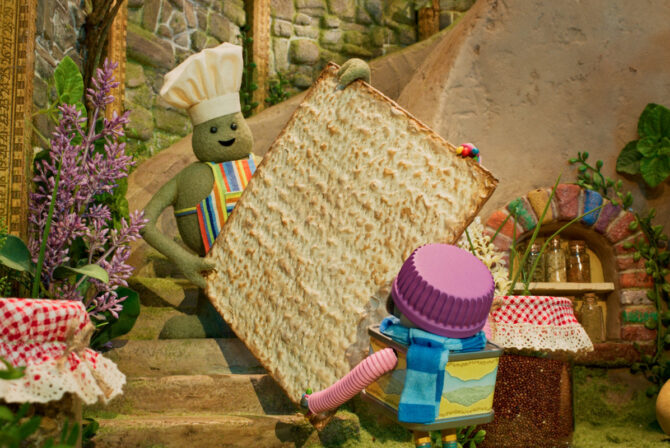Cerebral palsy, a congenital disorder, is probably more common than you think, with over 200,000 cases diagnosed in the US each year. Yet many people don’t know what it’s truly like to live with this movement disorder. Yael Zelinger, Coordinator of JADE: Jewish Advocates for Deaf Education, at the Macks Center for Jewish Education in Baltimore, recently spoke with Meyer Greenberger about living with Cerebral palsy (CP). Yael met Meyer at Camp HASC, and Meyer has been a frequent visitor to Baltimore to speak about and share his experiences with the students at the Talmudical Academy. Below, Yael talked with Meyer about the challenges and blessings of living with CP as part of JDAIM—Jewish Disability Awareness and Inclusion Month.
Please tell us a little about yourself. What is it like to live with CP?
I am 42 years old and I live in the Women’s League Community Residence, a group home in Boro Park, New York. I grew up in Williamsburg and I come from a very large family. I have two sisters and eight brothers, one of whom is my twin. I am the only one with a disability. Everyone else is married and has a family. When I grew up I didn’t think that my parents could take care of me. I know that they had a very hard time because of the way I am.
I am a wheelchair user and I have my own greeting card business. I like writing because it helps you share your feelings with others, which I think is very important. When I want to write, I dictate my words to another person and they type them for me.
What are some of the challenges of living with CP?
I am able to speak, but sometimes when I get very excited I have a hard time. I always know what I want to say and how I want to say it. When I meet new people it’s very hard for them to understand what I’m saying. I have to get used to them and they have to get used to my voice because I have a hard time pronouncing some words and some letters. When I speak to people and they don’t understand me, I sometimes feel like they don’t want to understand, like they are in a hurry to do something else. If people don’t want to take the time to understand me, I don’t want to be around them.
You get used to it, but it doesn’t get any easier. I do things today that I didn’t think I’d ever be able to do, like manage my own business and share my thoughts on a blog. I also speak to groups about what it is like to have a disability. They are always amazed at how much I do. If I put my mind to it, I can do anything I want, no matter how difficult. I have one goal—never give up. By living my life this way, I feel like I am giving back to my parents.
Do people ever stare at you? How do you feel about that?
It used to bother my mother when people stared at me. I told her, “If they want to look, let them look.” Nobody ever taught them that there are all kinds of people in the word. There are people who can walk and talk, and there are people who have a hard time walking or talking and have to use other ways to get around. I believe that every human being has things that they are good at, and things they are not so good at. I ask people if they would like to be me for a month. People always say that they could never do what I do.
What else would you like people to know?
It is difficult for me to do things, but I enjoy my life. I bet you never thought you would hear that, but I do. I am able to do things I never thought I would be able to do, like use a computer. I also use a motorized wheelchair and control it with my right hand and head. My wheelchair is not a wheelchair to me—it is my way of walking around. Most people walk on their own two feet, but my wheelchair is my two feet.
I think I have CP because it is what God wanted. I am able to teach people that despite my disability, I am able to do many things on my own, or with some assistance. I used to complain about my life, but then I stopped. I am meant to be this way, and I have to make the best of it.
Meyer is always happy to hear from readers. Click here to get in touch.
Read More:
What I Wish People Knew About Invisible Disabilities
My Teen Son’s Genetic Disease Turns Me into a Monster
How Jewish Community Services of Baltimore Can Help Your Family







